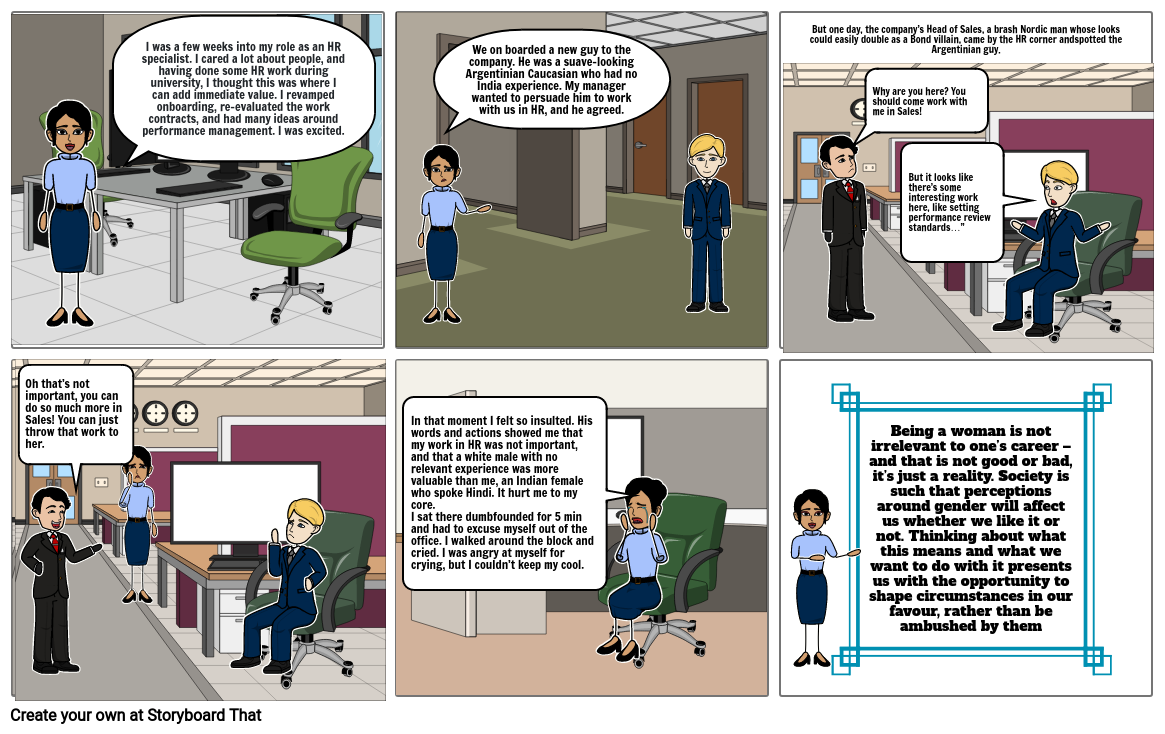GENDER AWARENESS

Storyboard Text
- I was a few weeks into my role as an HR specialist. I cared a lot about people, and having done some HR work during university, I thought this was where I can add immediate value. I revamped onboarding, re-evaluated the work contracts, and had many ideas around performance management. I was excited.
- We on boarded a new guy to the company. He was a suave-looking Argentinian Caucasian who had no India experience. My manager wanted to persuade him to work with us in HR, and he agreed.
- But one day, the company’s Head of Sales, a brash Nordic man whose looks could easily double as a Bond villain, came by the HR corner andspotted the Argentinian guy.
- Why are you here? You should come work with me in Sales!
- But it looks like there’s some interesting work here, like setting performance review standards…”
- Oh that’s not important, you can do so much more in Sales! You can just throw that work to her.
- In that moment I felt so insulted. His words and actions showed me that my work in HR was not important, and that a white male with no relevant experience was more valuable than me, an Indian female who spoke Hindi. It hurt me to my core.I sat there dumbfounded for 5 min and had to excuse myself out of the office. I walked around the block and cried. I was angry at myself for crying, but I couldn’t keep my cool.
- Being a woman is not irrelevant to one’s career – and that is not good or bad, it’s just a reality. Society is such that perceptions around gender will affect us whether we like it or not. Thinking about what this means and what we want to do with it presents us with the opportunity to shape circumstances in our favour, rather than be ambushed by them
Over 30 Million Storyboards Created

